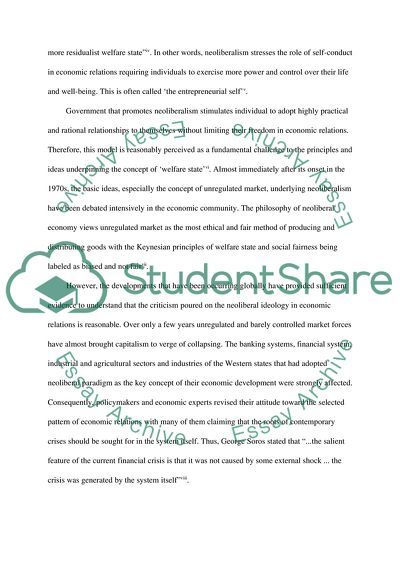Cite this document
(“Briefly characterise neoliberalism and discuss its likely Essay”, n.d.)
Briefly characterise neoliberalism and discuss its likely Essay. Retrieved from https://studentshare.org/miscellaneous/1553936-briefly-characterise-neoliberalism-and-discuss-its-likely-contributions-to-the-mutiple-contemporary-crises-foodenvironmentfinance-and-energy
Briefly characterise neoliberalism and discuss its likely Essay. Retrieved from https://studentshare.org/miscellaneous/1553936-briefly-characterise-neoliberalism-and-discuss-its-likely-contributions-to-the-mutiple-contemporary-crises-foodenvironmentfinance-and-energy
(Briefly Characterise Neoliberalism and Discuss Its Likely Essay)
Briefly Characterise Neoliberalism and Discuss Its Likely Essay. https://studentshare.org/miscellaneous/1553936-briefly-characterise-neoliberalism-and-discuss-its-likely-contributions-to-the-mutiple-contemporary-crises-foodenvironmentfinance-and-energy.
Briefly Characterise Neoliberalism and Discuss Its Likely Essay. https://studentshare.org/miscellaneous/1553936-briefly-characterise-neoliberalism-and-discuss-its-likely-contributions-to-the-mutiple-contemporary-crises-foodenvironmentfinance-and-energy.
“Briefly Characterise Neoliberalism and Discuss Its Likely Essay”, n.d. https://studentshare.org/miscellaneous/1553936-briefly-characterise-neoliberalism-and-discuss-its-likely-contributions-to-the-mutiple-contemporary-crises-foodenvironmentfinance-and-energy.


